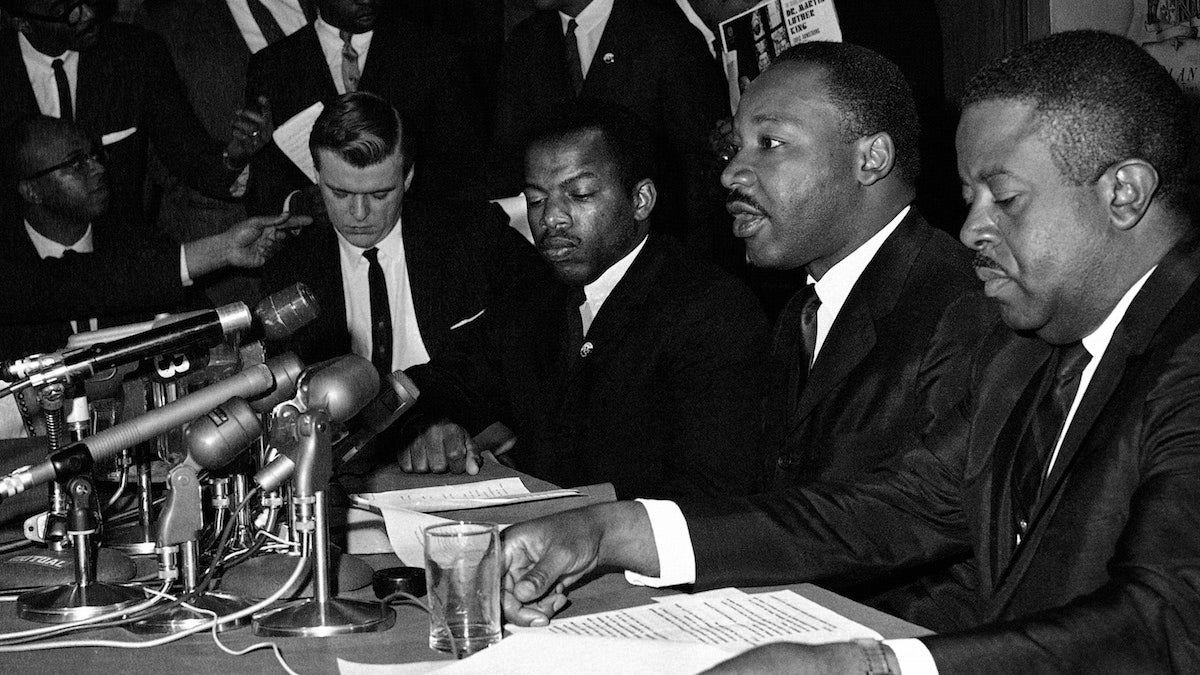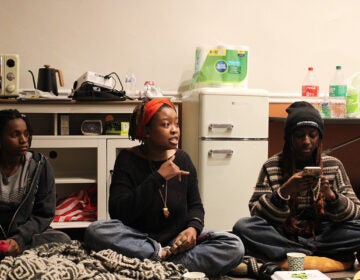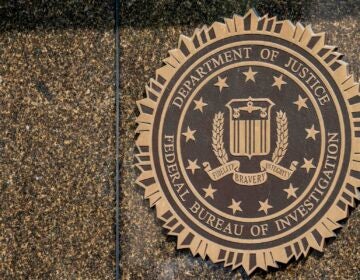King, Conversation and Coffee
Some of the world’s greatest moments of social change began with a simple conversation.

FILE - In this April 2, 1965 file photo, Dr. Martin Luther King Jr., second from right, speaks at a news conference next to John Lewis, to his left, chairman of the Student Nonviolent Coordinating Committee, in Baltimore. (AP Photo/William A. Smith, File)
Some of the world’s greatest moments of social change began with a simple conversation.
In conversation, ideas can be exchanged.
Differences can be debated.
Common ground can be established.
Unfortunately, in our society, the language we use is often too reactionary to establish any real dialogue. We sometimes let stereotypes and misconceptions influence how we respond in various settings which often make bad situations worse.
That seemed to be at the heart of the confrontation that occurred in a Philadelphia Starbucks when two African American men were arrested while waiting for a colleague but not ordering anything during their stay. The incident was captured by one of the patrons and shared on social media which resulted in millions of views around the world and almost immediate condemnation of Starbucks and their “policy” on such matters.
Changes have been made since (including an immediate “mea culpa” from the top brass at Starbucks; a settlement by the city which will establish an entrepreneurship program for youth; and, most recently, an afternoon shutdown of 8,000 locations nationwide for racial bias training of employees).
But I wonder if all of this could have been avoided by invoking the power of conversation and dialogue rather than force and the threat of violence.
I wasn’t there (though I’ve been in this particular Starbucks often). I’ve also reviewed the video of the incident dozens of times and I’ve seen the missed opportunities that could have resulted in a better outcome.
Could the Starbucks manager have had a more reasonable conversation with the two men as opposed to following a policy that required police intervention?
Probably.
Could the responding officers have made a better assessment of the situation that could have resolved things without handcuffs and arrests?
Yes.
Could the patrons in the store been more vocal in their protest as opposed to filming the episode and decrying this shameful turn of events?
Sure.
But at the core of this is the fact that we are increasingly using a broad brush to define how we see folks who may be different than us…and losing the detail of our humanity in the process.
The two African American men?
Loiterers…disrupters…trouble waiting to happen.
Individuals from immigrant families?
Illegals…rule breakers…threats to our country.
A sister wearing a hijab?
Terrorist…rebel…put her on a “watch list.”
We do each other such a disservice when we reduce someone’s identity to these shorthand descriptors that disregard the depth of who they really are. This tendency creates the type of poisonous conditions that begin in bigotry and too often ends with us drifting further apart.
This struggle to seek common ground is a foundational principle of any effort that strives for peace. A few months ago, we commemorated the 50thanniversary of the assassination of Dr. Martin Luther King, Jr., — a man who fought and died seeking peace in the midst of violence caused by the type of racial conflict that continues to divide us today.
In “Where Do We Go From Here: Chaos or Community?”, the last book King authored before his death, he wrote about the work we all must do (then, as now) in learning to live together in peace. “Like life, racial understanding is not something that we find but something we must create,” he said. “…the ability of (Blacks) and Whites to work together, to understand each other, will not be found ready made; it must be created by the fact of contact.”
Fact of contact.
That means eye contact. Voice contact. Social contact.
The type of contact that typically happens when we share a cup of coffee.
This is part of the challenge we need to overcome as a society. We find ourselves in our own silos…connecting only with those who think like us…socialize like us…exist like us.
And when the world challenges that narrow view with its diversity of thought, culture and being, our reaction should not result in snap judgements, regrettable responses, arrests (and sadly, sometimes violence).
But as King said, racial understanding is not something we’ll just find.
It must be created.
It must be sought.
And yes, at times, it’s something we must fight for.
Throughout the struggle for equal rights, courageous men and women have risked their lives by sitting at lunch counters they knew would refuse them because of the color of their skin.
Now that we’re all at the counter, let’s fight for each other to stay there.
—
Rev. David W. Brown is an Executive Committee Member of NewCORE (the New Conversation On Race and Ethnicity)
WHYY is your source for fact-based, in-depth journalism and information. As a nonprofit organization, we rely on financial support from readers like you. Please give today.




